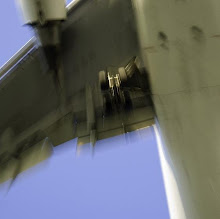 source : www.sctnow.org
source : www.sctnow.orgStop Child Trafficking Now (SCTNow) has studied many organizations and their methods used in addressing child trafficking issues. Almost every organization we’ve encountered is focused on rescuing victims. While we support all worthy endeavors in this cause, research indicates funding efforts to support the deterrence and eliminate the demand fueling this heinous crime is most effective.
Rescuing child victims, while important and essential, does nothing to stem the tide of child trafficking. Economic principals prove that supply is a byproduct of demand. When demand goes up, so too does the supply to meet that demand. Conversely, if the demand goes down, then so too will the supply. As long as these predators buy and exploit children, there will continue to be a market and a demand for them. SCTNow's philosophy is to give its undivided attention to the demand side. For these reasons, and based upon years of study, research, advice and counsel, SCTNow has chosen to fund a bold, new approach—one that addresses demand—by targeting child predators for prosecution and conviction. The key is in identifying predators to arrest, charge, prosecute and convict. To do this, we must investigate and gather sufficient evidence...then sentencing must be commensurate with the crime after the conviction. Only a limited number of convictions worldwide have occurred over the last decade. Bringing successful convictions against predators and traffickers will act as a deterrent to, or greatly deter, predators. A persistent focus on perpetrators is the key to Stop Child Trafficking Now! source : http://www.humantrafficking.org/countries/malaysia
Malaysia
The Situation
Malaysia is primarily a destination but also a source country for human trafficking. The traffickers are reportedly organized crime syndicates.
Source
A small number of Malaysian women and children, primarily of Chinese ethnicity, are trafficked for sexual exploitation in Singapore, Macau, Hong Kong, Taiwan, Japan, Australia, Canada, and the United States. The Ministry of Foreign Affairs and NGOs estimate that fewer than 100 Malaysian women were trafficked abroad during 2006 and that the number had declined in recent years.
Destination
Malaysia is destination country for a significant number of men women, and children who are trafficked from Indonesia, Thailand, the Philippines, Cambodia, Vietnam, Burma, and the People's Republic of China (P.R.C.), India, Nepal, Bangladesh, and Pakistan for sexual and labor exploitation. Many victims voluntarily migrate to Malaysia to work in factories, construction and agricultural sectors, or as domestic servants, but are later coerced into debt bondage or involuntary servitude. The Malaysian NGO, Tenaganita reported that 65 percent of the trafficking victims in Malaysia are for forced labor.
The Malaysian Government
The Malaysian Government was placed in Tier 3 in the 2007 U.S. Department of State’s Trafficking in Persons Report for not fully complying with the Trafficking Victims Protection Act’s minimum standards for the elimination of trafficking and not making significant efforts to do so.
There were reports of government officials who are complicit in trafficking; however, none have been prosecuted. In February 2005, officials in the National Registration Department were detained for forging permanent resident identity cards to traffickers.
The Malaysian House of Representatives recently passed an Anti-Trafficking in Persons Act in May 2007. Under the new act, traffickers can face sentences up to 20 years in prison, fines and a whipping. Victims would be placed in half-way shelter houses for three months to two years. The new act is expected to be enacted within three months after May. The Government has been using a variety of laws to prosecute traffickers, such as the Child Act for trafficking of children, the Immigration Act, and the restricted Resident Act to prosecute traffickers. Penalties for traffickers included 15 years in prison, a caning, and fines.
Prosecution
In 2006, there were no prosecutions of traffickers in Malaysia. However, the government prosecuted 35 people for using minors for prostitution, arrested 22 individuals for procuring brothels, and 16 individuals for arranging prostitution.
In a MOU with Indonesia, the Government requires employers who confiscate passports from migrant workers and confine them in their workplace in Malaysia. There have been no prosecutions of these employers for trafficking.
Protection
The Malaysian Government offers shelters and no legal alternatives to repatriation for victims who face hardship or retribution in their country. The majority of trafficking victims were rescued because of requests by foreign embassies. The Indonesian Government houses approximately 1,100 women and children, the majority of whom are thought to be trafficking victims. The Indonesian embassy in Kuala Lumpur holds more than 150 victims of employer abuse and trafficking victims. Malaysia does not adequately identify its trafficking victims; most illegal migrants were deported or imprisoned without identifying any potential trafficking victims.
Prevention
The Malaysian Government has few programs for preventing human trafficking. The Ministry of Women, Family, and Community development held a conference to teach police and immigration officials to identify trafficking victims. The Royal Malaysian Police held a one-day workshop to develop a national strategy.
The 2005 MOU between the Governments of Indonesia and Malaysia allows Malaysian employers to confiscate passports from its migrant workers. This MOU is widely recognized as facilitating involuntary servitude.


0 comments:
Post a Comment